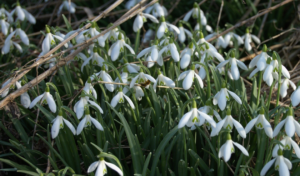Turning points are often imagined as dramatic, singular moments—a bold choice, a revelation, or an event that shifts everything in an instant. But in reality, turning points can also be gradual, unfolding through a series of small decisions, observations, or changes that build into something larger.
They arrive like the changing of seasons—quiet, gradual, yet unmistakable over time. Like how winter slowly loosens its grip, giving way to spring, and how spring gently unfolds into the warmth of summer, turning points in our lives can emerge through a series of moments.
These small shifts may seem insignificant on their own, but together, they pave the way for transformation.
JOURNALING & MORNING PAGES PROMPT
Start by jotting down anything that comes to mind about turning points—big or small. Let the ideas pour out without judgment.
Write about those subtle shifts that built toward something significant. Maybe it’s the quiet moments you usually overlook: a recurring conversation, a sudden feeling you couldn’t explain, or a decision that seemed trivial at the time.
Focus on the details—the way the sunlight fell, the sound of footsteps, or the scent in the air. Allow your pen to wander into those in-between spaces where change often begins.
You might also explore objects or symbols that represent change in your life.
- What’s something you associate with transition or growth?
- How do those objects hold meaning?
- Let the words flow without censoring or editing—this is just a place for exploration and discovery.
These morning pages could be messy, scattered, or poetic. The goal is to uncover and examine the threads of transformation in your thoughts, laying the groundwork for more structured writing later.
FICTION
Imagine a story where a turning point is set in motion through a series of seemingly minor events or choices. Introduce a character who initially doesn’t realize they’re on the brink of change.
What are the moments that build to this turning point? How does the character react once the shift becomes clear, and how does this transformation impact their relationships, goals, or environment?
Focus on the subtlety and gradual nature of the change, weaving the buildup and aftermath into your narrative.
CREATIVE NONFICTION
Think of a turning point in your life. Begin by describing the situation: the factual context and the series of events that led to the turning point. What were the specific moments, decisions, or circumstances that unfolded? Once the situation is clear, delve into the story: the emotional and personal journey that accompanied this change.
How did these events shape your inner world—your thoughts, feelings, and understanding of yourself or others? Reflect on how the gradual buildup and eventual turning point influenced the larger arc of your life.
Craft an essay that balances the external reality of the situation with the internal transformation of the story, drawing connections between the two.
POETRY
Metonymy, the technique of using a related object or concept to represent something larger, offers poets a powerful way to evoke meaning. Instead of stating the turning point outright, focus on the details that embody the transition—the budding flower that whispers of renewal, the abandoned chair that speaks of absence, the echo of footsteps as doors close and new paths open.
Write a poem about a turning point, using metonymy to suggest the gradual shift leading to transformation. Let the imagery guide your reader to understand the change through association and symbolism. How can the objects, actions, or sensations in your poem reflect the layers of transition without explicitly naming them?



